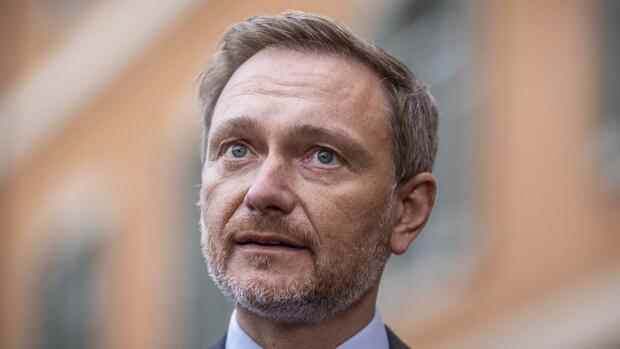Lindner had already campaigned for super write-offs during the election campaign.
(Photo: dpa)
Berlin It was one of the few tax breaks that the SPD, Greens and FDP were able to quickly agree on: the super write-offs for companies. The traffic light announced in the coalition agreement: “We want to create an investment premium for climate protection and digital economic goods.” This should already apply for the years 2022 and 2023.
But now the project could be delayed. The Federal Ministry of Finance is examining when it makes sense to strengthen depreciation rules, according to government circles. Federal Finance Minister Christian Lindner (FDP) does not see himself tied to a fixed timetable, but wants to find the macroeconomically best time.
Lindner had already campaigned for super write-offs during the election campaign and brought the proposal into the coalition negotiations. But the framework conditions have changed: the problems in the supply chains are ongoing and are causing problems for many companies. Your order books are well filled, but sometimes there is a lack of preliminary products. According to economists, an additional investment incentive in such a situation does not necessarily make sense.
Ifo President Clemens Fuest says: “It is true that tax incentives to invest are less effective if companies would like to invest but are unable to because capital goods such as machines cannot be delivered.” In this case, depreciation would promote investment, which would have taken place without the funding. The federal government wants to avoid such deadweight effects.
Top jobs of the day
Find the best jobs now and
be notified by email.
In addition, the Federal Ministry of Finance recently presented the draft of the fourth Corona Tax Assistance Act. Among other things, it provides for the degressive depreciation on movable assets introduced during the pandemic to be extended until the end of the year. Therefore, some financial politicians in the traffic light coalition do not consider the super write-offs to be quite as urgent.
Complicated project
According to information from coalition circles, there are other reasons for a possible delay in addition to economic considerations. During the talks about the design of the super write-offs, it became apparent how complicated the project was.
It starts with the question of how much the companies should benefit, i.e. whether it is a real “investment premium”, as the coalition agreement says, or just faster depreciation. It depends crucially on how expensive the measures will be for the Federal Minister of Finance – whether it is a matter of a few hundred million euros a year or several billion euros.
And the definition of what investments in digitization and climate protection actually are and what they are not also causes problems. They don’t want a bureaucracy monster, according to the traffic light coalition. On the other hand, there must be clear guidelines so that the costs do not get out of hand and there are no high deadweight effects.
>> Read here: A signal of stability, please, Mr. Lindner! A comment.
The super write-offs are “firmly agreed by the coalition and important in order to combine the economic recovery after Corona with investments in climate and digitization,” says the deputy leader of the Greens, Lisa Paus. “We are waiting for the concrete proposal for implementation from the Federal Ministry of Finance.”
The economy has also heard about possible delays and is putting pressure on as a precaution. Chief Executive of the Federation of German Industries (BDI), Joachim Lang, said: “The federal government must now keep its promise to provide companies with additional investment incentives.” to advance the digital and economic transformation of the industry”. Especially in medium-sized companies, an innovation boost via an investment bonus is indispensable.
Ifo President Fuest also advises against a postponement, even if there are reasons for this, such as the current delivery problems. “Special write-offs currently also have the function of supporting companies suffering from a lack of equity,” says the economist.
That also works in the current situation. Accelerated depreciation would only postpone tax payments into the future. “Since the state can currently borrow for negative interest rates, the costs of the subsidy are close to zero,” says Fuest. “Overall, I would advise against the postponement.”
More: Christian Lindner promises “Ministry of Enabling” – How much boom will he provide?

